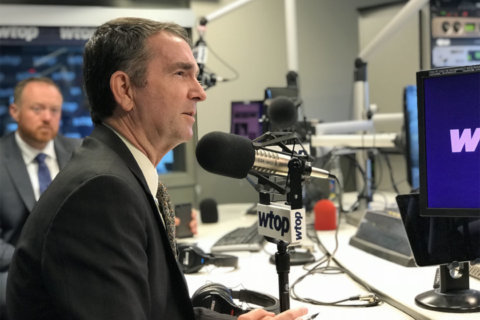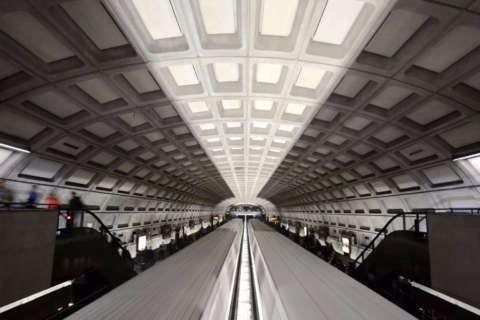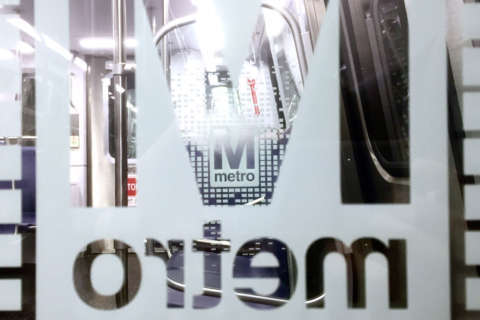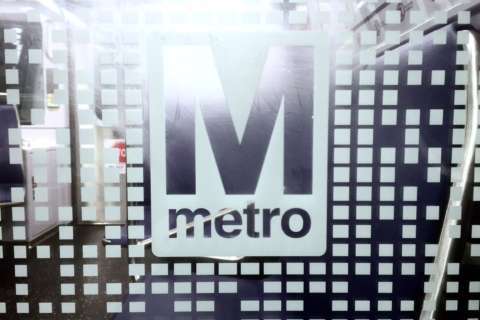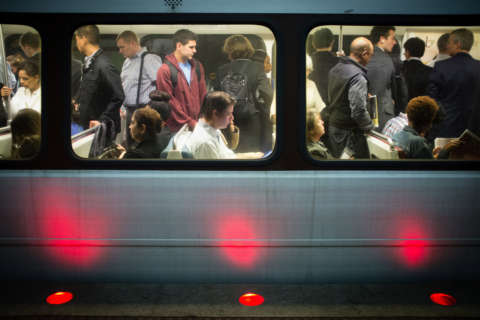WASHINGTON — A clearer picture is emerging of the amount of money pulled from other Northern Virginia transportation projects to be dedicated to Metro. At the same time, Metro Board members are expressing some resistance to reforms required by the Virginia funding bill.
A Northern Virginia Transportation Authority funding strategy due to be discussed next week will outline plans to handle a drop in expected revenue for a six-year plan of $276.4 million for regional projects and a projected drop of $118.5 million in NVTA revenues distributed to local governments for projects other than Metro.
Local governments also must contribute additional money to Metro under the legislation beyond their current contributions.
The projected drop of $394.9 million is more than the region’s governments had agreed to in the fall, when they backed much of the original Metro funding proposal, but continued to hope for some kind of statewide contribution to help fill the gap.
What NVTA loss could cut
Among the 60 projects submitted for the authority’s $1.2 billion regional six-year plan, the funding shifted to Metro could otherwise have been used for new roads, widening of roadways, new interchanges, local bus and bike improvements, or VRE or Metro station enhancements, like new entrances that would be funded through local governments.
Metro withdrew two requests for a total of about $100 million in funding from this program earlier this month, citing the new regional dedicated funding that could cover the power upgrades and study of a new Blue Line station in Rosslyn.
Before the Metro funding bill, the authority had projected it would have about $1.5 billion for the six-year plan.
A public hearing on the projects that could be included in the authority’s first-ever six-year plan is scheduled May 10 at the NVTA’s offices in Fairfax, Virginia. Comments can also be submitted online.
If the regional money that has now been shifted to Metro were only used to cover smaller requests, it could cover the regional share of multiple projects such as overpasses and interchanges, bus improvements, a parking garage, or bike routes.
Alternatively, it could cover fewer larger projects, such as improvements along the Route 15 Leesburg Bypass, Route 1 widening, or further Route 28 fixes.
The NVTA plans to spend its regional money as cash, rather than borrowing against future projects in order to have the most significant and consistent impact on travel in the region.
Virginia Gov. Ralph Northam suggested this week on WTOP’s Ask the Governor that he may attempt to get more funding for regional road projects added through the state budget.
An ongoing General Assembly special session on the budget standoff is expected to last several more weeks at a minimum.
The original metro funding bill proposed by then-Gov. Terry McAuliffe would have reduced NVTA regional funding by about $106 million over six years and the funding passed on to local governments by $204 million over six years.
Republicans in the House of Delegates rejected the tax increases proposed as part of that bill that were meant to reduce the reliance on existing Northern Virginia tax dollars.
Metro Board changes
Virginia’s funding bill requires a series of changes to Metro Board operations that a number of board members and alternates are not happy with. There’s concerns the change could impede balanced representation of the region without accomplishing much.
Shrinking the board from essentially 16 members to just eight emerged from a report last year by former U.S. Transportation Secretary Ray LaHood, who actually recommended an even smaller board that he hoped would take more dramatic and decisive action.
LaHood’s proposal would not have given the board any new authority.
The change to block alternates from participating in meetings unless they are sitting in the place of a main member of the board could require an overhaul of the board’s current operations, Metro Board Chairman Jack Evans said Thursday.
“That would entail a different structure and probably an evaluation by the eight principals as to how we operate with committees, etc.,” Evans said.
Now, the board meets twice each month, recently with multiple committees sometimes meeting at the same time. The meetings are public, and often reveal or shed new light on Metro’s successes and challenges.
“What we’re going to do here is proceed as we are until we’re instructed to do otherwise,” Evans said.
Any violation of the Virginia prohibitions would result in the state withholding a significant amount of the new, additional dedicated tax revenue intended for Metro.
“At the end of the day, we will comply with what we need to comply with so that we can make sure we get the funds,” Evans said.
Lawyers for Metro are working with Virginia and Maryland, which passed some of its own new changes aimed at Metro this year, alongside its funding from a general transportation account, to compile the new rules expected to take effect this summer.
Maryland’s funding bill is effective June 1, although the money would not flow immediately. Virginia’s bill is effective July 1.
The change will mean current safety committee chair, Federal Railroad Administration Chief Safety Officer Bob Lauby, will no longer be permitted to participate in board or committee meetings if the two main federal appointees are present.

